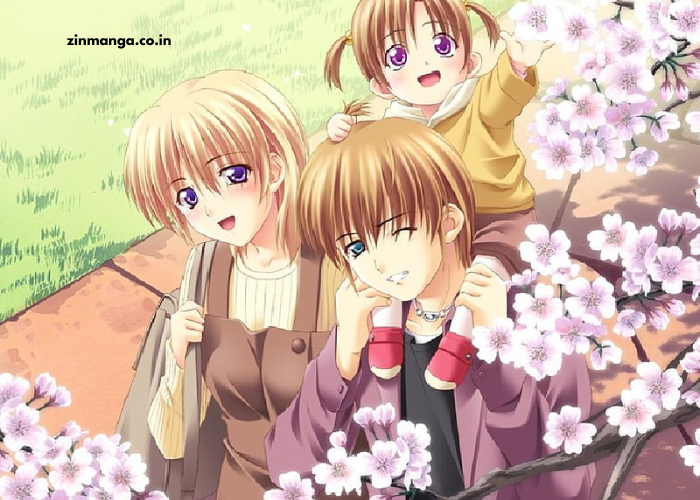In today’s rapidly evolving world, technology is advancing at an unprecedented pace. The digital age has ushered in a new era of innovation and transformation, with emerging technologies reshaping industries and daily life. From artificial intelligence (AI) to quantum computing, the digital landscape is witnessing breakthroughs that have the potential to change how we work, communicate, and interact with the world around us. This article delves into some of the most exciting emerging technologies and explores their potential impact on various sectors.
The Rise of Artificial Intelligence and Machine Learning
What is Artificial Intelligence?
Artificial intelligence (AI) refers to the simulation of human intelligence in machines. Through the development of algorithms and neural networks, AI can perform tasks that would typically require human cognition, such as problem-solving, decision-making, and pattern recognition. Over the last few years, AI has gained significant traction in numerous industries, from healthcare to finance, education to entertainment.
Machine Learning and Deep Learning
Machine learning (ML) is a subset of AI that focuses on the development of algorithms that allow machines to learn from data without being explicitly programmed. Deep learning, a more advanced branch of machine learning, utilizes artificial neural networks to mimic the human brain’s functionality and process vast amounts of unstructured data. Together, AI, ML, and deep learning are driving a wave of innovation that has the potential to revolutionize numerous sectors.
Applications of AI and Machine Learning
AI and machine learning have already begun to impact industries such as healthcare, automotive, retail, and finance. In healthcare, AI-powered diagnostic tools can analyze medical data to assist doctors in making more accurate diagnoses. In the automotive sector, self-driving cars, powered by AI, are transforming the way we think about transportation. Machine learning algorithms in the finance industry are used to detect fraud and optimize investment strategies. Retailers are leveraging AI to offer personalized shopping experiences and optimize inventory management.
Blockchain Technology and Its Disruptive Potential
What is Blockchain?
Blockchain technology is a decentralized and distributed ledger system that records transactions across multiple computers in a secure and transparent way. The technology is best known for its use in cryptocurrencies like Bitcoin, but its potential applications extend far beyond digital currency. Blockchain has the ability to revolutionize various industries by offering secure, transparent, and efficient ways to store and transfer data.
How Blockchain Works
Blockchain works by creating a “chain” of blocks, each containing a set of transactions. When a new transaction is added to the blockchain, it is verified by a network of participants (nodes) and then added to the chain in a way that is immutable and transparent. The decentralized nature of blockchain eliminates the need for intermediaries, making it a cost-effective and secure method for conducting transactions.
Blockchain in Various Industries
In addition to its role in cryptocurrency, blockchain technology is finding applications in sectors like supply chain management, healthcare, voting systems, and real estate. In supply chains, blockchain can track goods as they move through different stages, providing transparency and reducing fraud. In healthcare, blockchain can securely store patient records and improve data interoperability. Blockchain’s ability to create tamper-proof records also makes it an ideal solution for enhancing the integrity of voting systems and reducing election fraud.
The Evolution of 5G Technology
What is 5G?
5G is the fifth generation of wireless technology, designed to provide faster speeds, lower latency, and greater capacity compared to its predecessor, 4G. 5G is poised to revolutionize connectivity, enabling the growth of new technologies such as the Internet of Things (IoT), autonomous vehicles, and smart cities. By providing faster internet speeds and more reliable connections, 5G will allow for more seamless communication between devices and the internet.
The Impact of 5G on Industries
The rollout of 5G networks is expected to have a significant impact on various industries, including healthcare, manufacturing, entertainment, and transportation. In healthcare, 5G will enable real-time remote monitoring of patients, improving the quality of care. In manufacturing, 5G will support the development of smart factories, where machines and devices can communicate seamlessly to optimize production processes. Autonomous vehicles, powered by 5G, will be able to communicate with each other and the infrastructure around them, making transportation safer and more efficient.
Challenges and Opportunities of 5G
While the potential of 5G is immense, there are still challenges to overcome. One of the main concerns is the need for significant infrastructure investment to build the necessary 5G networks. Additionally, there are security and privacy concerns associated with the increased connectivity that 5G will bring. However, the opportunities for innovation and growth that 5G enables are vast, and its widespread adoption is expected to have a transformative impact on the global economy.
Quantum Computing: The Next Frontier
What is Quantum Computing?
Quantum computing is a revolutionary technology that uses the principles of quantum mechanics to process information in ways that traditional computers cannot. Unlike classical computers, which use bits to represent data as either 0 or 1, quantum computers use qubits, which can represent data as both 0 and 1 simultaneously. This ability allows quantum computers to solve certain complex problems exponentially faster than classical computers.
Potential Applications of Quantum Computing
Quantum computing has the potential to revolutionize fields such as cryptography, drug discovery, and materials science. In cryptography, quantum computers could break existing encryption methods, leading to the need for new, quantum-resistant encryption techniques. In drug discovery, quantum computers can simulate molecular interactions at a level of detail that is impossible with classical computers, potentially speeding up the development of new drugs. In materials science, quantum computing could help design new materials with specific properties, leading to innovations in industries like energy storage and electronics.
The Road to Quantum Supremacy
While quantum computing holds great promise, it is still in its early stages of development. Researchers are working to overcome significant challenges, such as qubit stability and error rates, before quantum computers can be widely used for practical applications. However, advancements in quantum algorithms and hardware are being made every day, and quantum computing is expected to have a transformative impact on various industries in the near future.
Augmented Reality (AR) and Virtual Reality (VR)
What are AR and VR?
Augmented reality (AR) and virtual reality (VR) are immersive technologies that blend the physical and digital worlds. AR overlays digital content onto the real world, while VR creates entirely virtual environments. Both technologies are gaining traction in industries like entertainment, education, healthcare, and retail, offering new ways to engage with content and interact with digital experiences.
Applications of AR and VR
In entertainment, VR is being used to create immersive gaming experiences, while AR is transforming the way people interact with their surroundings, such as in the case of interactive mobile apps like Pokémon Go. In healthcare, AR and VR are being used for medical training, providing simulations for complex procedures, and offering pain management therapy. Retailers are using AR to allow customers to virtually try on clothing or visualize how furniture will look in their homes before making a purchase.
The Future of AR and VR
The future of AR and VR looks bright, with continued advancements in hardware and software making these technologies more accessible and realistic. As the technology matures, we can expect to see even more innovative applications in fields like education, real estate, and therapy. The ability to immerse users in entirely new environments has the potential to revolutionize how we work, learn, and play.
The Internet of Things (IoT) and Smart Devices
What is the Internet of Things (IoT)?
The Internet of Things (IoT) refers to the network of interconnected devices that communicate and exchange data over the internet. These devices, which can include anything from smartphones and wearable devices to home appliances and industrial machinery, are equipped with sensors that enable them to collect and transmit data in real time.
IoT in Everyday Life
In everyday life, IoT is making homes smarter, businesses more efficient, and cities more sustainable. Smart home devices like thermostats, security cameras, and lights can be controlled remotely, offering convenience and energy savings. In industries like agriculture, IoT sensors are used to monitor soil moisture levels and optimize irrigation. In smart cities, IoT is helping to improve traffic flow, reduce energy consumption, and enhance public services.
The Future of IoT
The future of IoT is incredibly promising, with billions of devices expected to be connected in the coming years. As IoT technology advances, we can expect even more automation and greater interconnectivity, with devices seamlessly communicating and making intelligent decisions. However, concerns around data privacy and security will need to be addressed as IoT devices become more widespread.
Conclusion
Emerging technologies are transforming the digital age, creating new opportunities and challenges across industries. From AI and blockchain to quantum computing and IoT, the possibilities are endless, and the potential for innovation is immense. As these technologies continue to evolve, they will shape the future of business, healthcare, entertainment, and everyday life, offering exciting prospects for those ready to embrace the digital revolution.
By staying informed and adapting to these emerging technologies, businesses and individuals can stay ahead of the curve and harness the power of the digital age to drive growth and success.




